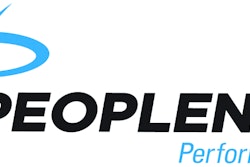Frankfurt Airport, Fraport AG outlined the further intensification of its sustainability program during the previous year.
In 2010, Fraport developed a "materiality matrix" covering the most important fields of action for the company and its stakeholders. During 2011, Fraport expanded its specific targets and required measures to all 17 of the fields of action in the matrix.
The 17 fields include: safety and security, noise abatement, climate protection, appeal as an employer, customer satisfaction, profitability of investments, air quality, conserving nature and resources, compliance/governance, sustainable construction, retaining and creating jobs, diversity, regional commitment, occupational health and safety, training and career development, procurement, and intermodality (linking transportation modes).
"Via this ambitious program, we are giving equal balance to social, ecological and economic aspects of our corporate governance," said Fraport AG executive board chairman Dr. Stefan Schulte. The title of our report - Connecting Sustainably - underscores that "Frankfurt Airport, more than any other gateway, serves as Germany's primary connection to the world. Likewise, we are also meeting the challenge of connecting aspects like the steady increase in demand for mobility with Fraport's responsibility for the environment and the people of our region. This also includes the obligation to sustainably maintain the company's competitiveness in tandem with our responsibility to employees."
The expansion of Frankfurt Airport (FRA) is being accompanied by high environmental standards. Thus, our overriding goal is to keep CO2 emissions related to airport operations at the same level in 2020 as in 2005 - despite the expected growth in air traffic. Constructing energy-optimized buildings and renovating existing facilities as well as incrementally converting our vehicle fleet to electric power will also contribute to this goal.
In early 2012, Fraport's Frankfurt Airport advanced to the challenging Optimization Level, the third of four levels in the Airport Carbon Accreditation program initiated by ACI Europe. "This confirms that we are on the right path. The implementation of systematic CO2 controlling later this year will enable us to reach our carbon-reduction targets," stressed Schulte. Frankfurt Airport became the first airport to receive accreditation in 2009 and was one of the founding airports of this voluntary carbon management certification program.
Schulte emphasized that Fraport, in connection with sustainable corporate development, is also focused on its customers and staff.
"For the benefit of airline partners, our Operational Excellence project is strengthening FRA's operational efficiencies -- even as traffic volumes increase in the future. At the same time, we are also meeting the growing expectations air travelers, particularly with our Great to Have You Here quality service initiative" as well as ongoing enhancements to facilities and services offered in the terminals."
"These goals can only to be achieved by an attractive employer with motivated and well-trained staff," said Schulte. Taking into account demographic changes, Fraport has placed a strategic priority on developing age-based job design, increasing the share of women in management positions, and offering more advancement opportunities to staff with a foreign background. Germany's aging and declining population is a challenge that requires open and honest socio-political discussion: "A country whose population and workforce are expected to shrink so drastically in the coming decades must make the necessary decisions now and be committed to tackling this challenge. We owe this to our children's future. We have to allow more immigration to enrich the workforce!"
Source: Company Website














